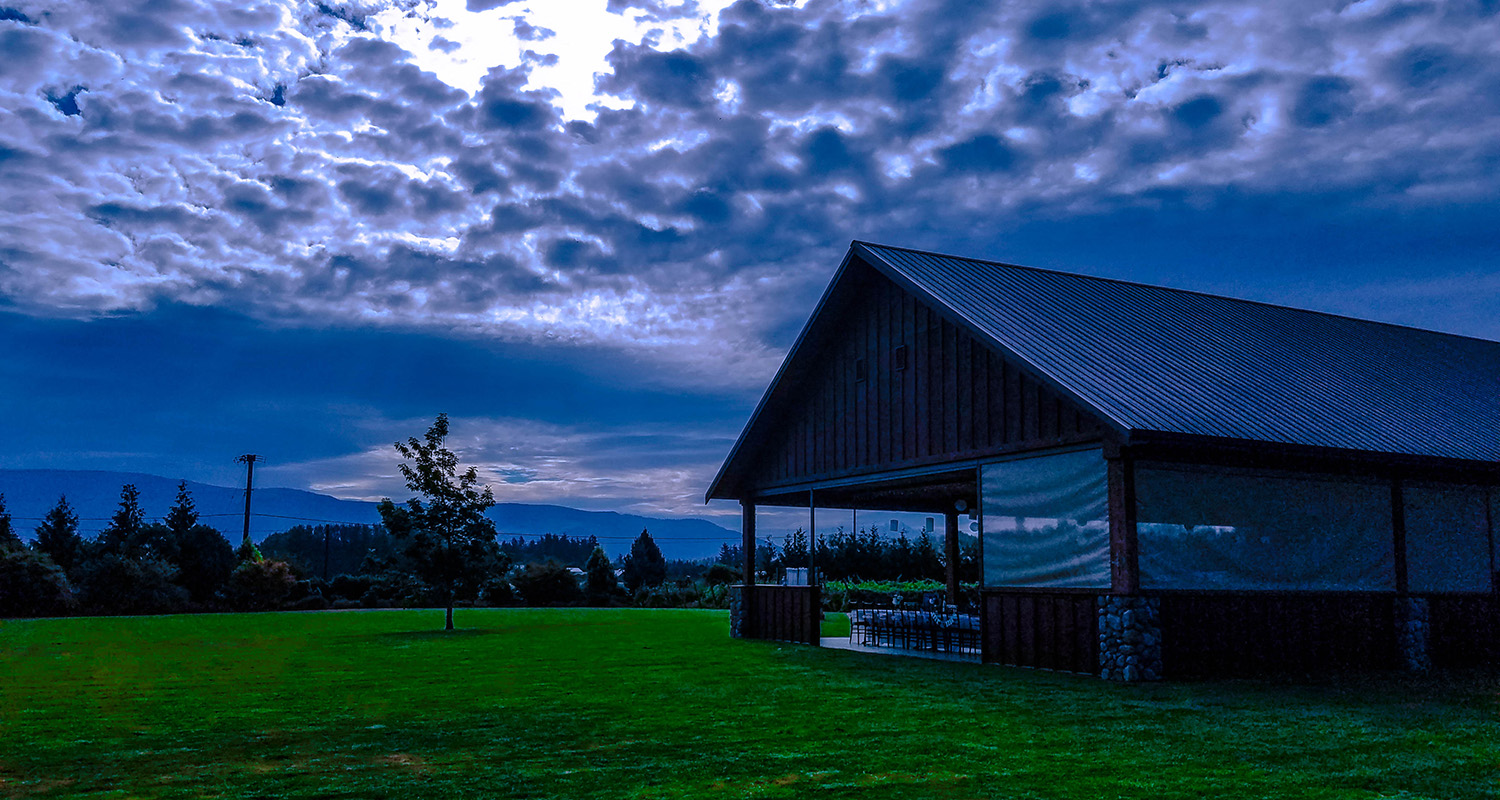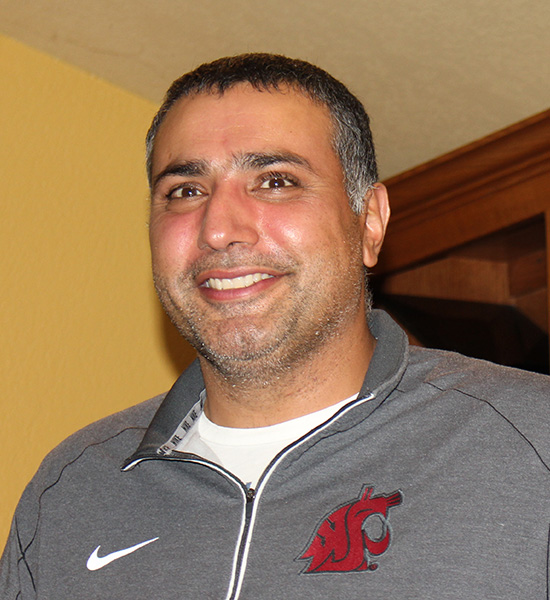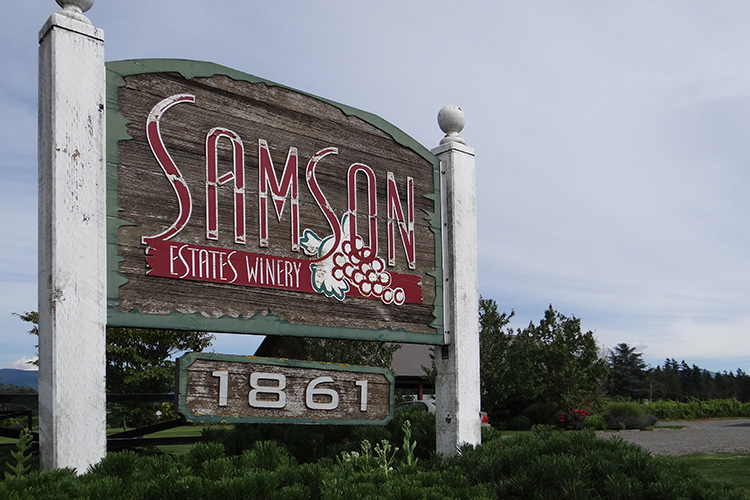Samson Estates Winery proves there’s a place at the table for fruit wines.
Samson and Delilah labels have developed a loyal and larger-than-expected customer base for this Whatcom County, WA., winery.
By Dan Radil
Is there a place at the table for Washington fruit wines made from anything other than traditional wine grape varietals? Of course there is.
And while wine purists may be reluctant to consider the virtues of something in their wine glass made from blackberries, raspberries or currants, one whiff and sip of a locally-produced fruit wine may make them think otherwise. It starts by often using fresh, high-quality ingredients and ends with sensorially stunning wines that frequently elicit a ‘wow’ response…especially from those expecting to taste nothing more than sweet, alcohol-laden fruit juice.
Whatcom County’s Samson Estates Winery is one of just a handful of Washington wineries that makes fruit wines on a regular basis. The winery has developed a loyal and larger-than-you’d-expect customer base and because of that, it has successfully established a niche within the state’s wine industry.
WINEMAKING ROOTED IN FARMING
Samson Estates opened its doors in 2002, just a few miles southeast of Lynden, WA. near the town of Everson. The winery is located on the nearly 500-acre family farm, which grows its own raspberries, blackberries, blueberries, and black currants. Owner/winemaker Rob Dhaliwal graduated from Washington State University and worked at Coventry Vale Winery in Grandview prior to helping establish Samson Estates.
Although fruit wines have always been the winery’s specialty, it’s raspberry that has been the consistent best seller. “Part of that is probably due to the fact that raspberry is what I grew up with,” says Dhaliwal, “and I know what a raspberry should taste like. We grow several different varieties on the farm and there are certain ones that work better as wine.”
One of the problems in making fruit wines, he notes, is that the berries only have about 10 to 12 brix levels at harvest. In addition to yeast, “We have to add sugar and water,” he explains. ‘Without the sugar we’d have pretty weak wine and without the water it would be too syrupy. But you can dictate the acid and sugar contents, which vary with each batch.”
Dhaliwal also likes that his finished wines can be stored in 55-gallon drums until ready to use. “We keep our wines in cold storage, which allows us to match up production with demand.” Another advantage: as little as 10 weeks is all that is needed from thawing the fruit to bottling the wine.
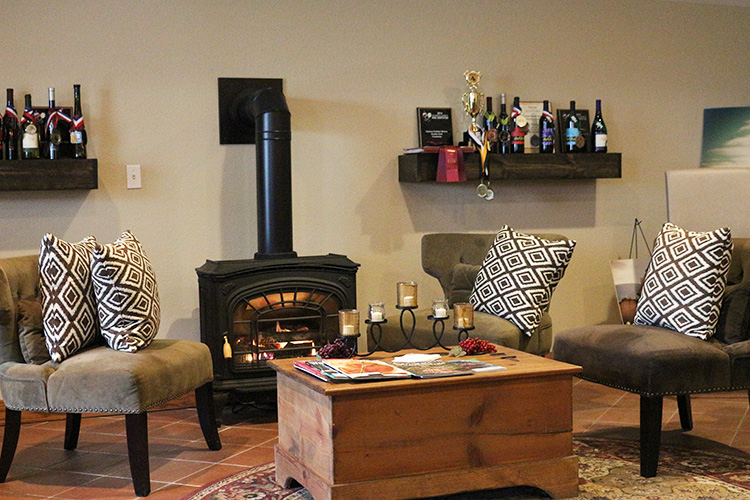
The tasting room at Samson Estates is a cozy place where guests can relax in comfortable chairs and enjoy the “fruits” of the winery’s labor. Photo by Dan Radil.
The winery produces two tiers of fruit wines based on sweetness levels: artisan fruit wines that generally have residual sugar contents ranging from two to five-percent (bottled under the ‘Delilah’ label); while artisan dessert wines, perfectly balanced with alcohol fortification, usually run from about nine to fourteen-percent (bottled with the ‘Samson Estates’ label).
There’s also the Oro Hazelnut wine, sourced from Holmquist Hazelnut Orchards near Lynden. Produced in a beautiful, elongated bottle, Dhaliwal notes, “it’s not as intense as Frangelico and it’s very smooth. It also pairs great with tiramisu,” and Cougar Gold cheese, as well. Other notable food pairings he suggests are the blueberry wine with Brie cheese and the raspberry or blackberry wines with barbeque chicken, smoked salmon, or pork tenderloin.
For those who enjoy more traditional varietals, Samson also offers a Riesling, Chardonnay, Merlot, and Syrah. Dhaliwal says that he needed to give these wines their own distinct label within about three years of opening the winery to set them apart from the fruit wines.
These varietals have developed a following as well, and he cites his consistent prices and quality Eastern Washington vineyard sources from the Yakima Valley and Horse Heaven Hills Appellations as reasons why the wines are so popular among “non-fruit” wine drinkers.
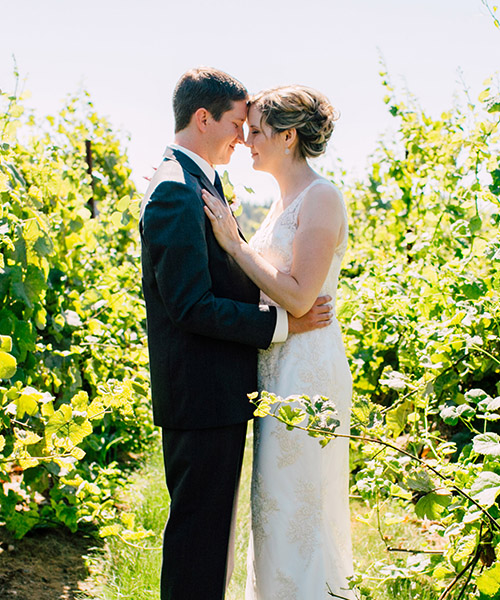
How much more romantic can it get than getting married between rows of grape vines at Samson Estates Winery?
FUTURE CHALLENGES
Samson Estates’ rural setting puts it in a bit of an out-of-the-way location. At the same time, the quiet and serenity of a facility nestled amongst the raspberry fields in the heart of Whatcom County’s farmland also has its appeal. In addition to group tastings, Manager Anne Gould notes that the pavilion building adjacent to the tasting room is a big draw for weddings, family reunions, and employee parties and office-related functions.
One of the other biggest challenges that has been and continues to be an issue for the fruit wine industry is the stigma of something introduced over 50 years ago: Gallo’s Boone’s Farm wines. “When people think fruit wines they think of Boone’s Farm and Arbor Mist, which is cheap, white wine with sugar flavoring. That’s a misconception we’re trying to get away from,” Dhaliwal explains.
He goes on to note that the difference today is the use of real fruit during production, which results in a “true-to-the-fruit” wine.
Fortunately, Samson’s proximity to and use of fresh fruit sources for its wines, coupled with their surprising food-pairing potential, have gradually changed wine consumers minds. That should virtually assure that there will always be a place at the table for fruit wines produced by Washington State wineries.
WINE NOTES
2016 Riesling – Understated green apple, pineapple, and melon flavors melt into an off-dry finish with a hint of lemon chiffon. Complex and delicious.
2014 Merlot – A base of red and black cherry fruit is capped with a flourish of black pepper, sweet tobacco and a velvety-soft finish. Drinking beautifully and also available in the 2016 vintage.
Delilah Raspberry Wine – Made from 100-percent fruit, the explosion of fresh raspberry aromatics and flavors is amazing. A 5-percent residual sugar content is kept in check with perfectly balanced acidity.
Delilah Blueberry Wine – In addition to the blueberries, the wine displays a lovely floral aroma throughout, coupled with an underlying touch of earthiness.
Delilah Blackberry Wine – Softer drinking, this wine is a bit lighter on the fruit and acidity, with hints of wild, brambly berries and baking spice on the finish.
Framboise Raspberry Dessert Wine – Gorgeous, ripe raspberry aromas and flavors fill the glass from start to finish. Double Gold winner at the 2014 San Francisco Chronicle Wine Competition and still available for purchase.
Cassis Black Currant Port Wine – Incredible forest floor aromatics lead off, while layers of black currant fruit are backed by surprisingly strong and refreshingly spot-on acidity.
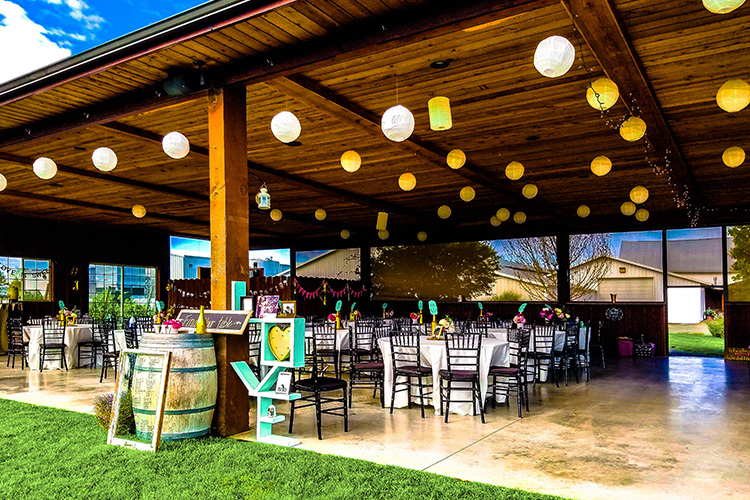
The pavilion building at Samson Estates is constantly in use all summer long for hosting wedding receptions, family reunions, employee parties…you name it.
SAMSON ESTATES WINERY
Samson Estates Winery is located at 1861 Van Dyk Road, Everson, WA. (360) 966-7787. www.samsonestates.com.
Hours vary by Season. May 28 to September 2: Wednesday thru Sunday, 11:00 AM to 6:00 PM or by appointment.
If you can’t get to Samson Estates this summer, you can taste their wines at the Bellingham Northwest Wine Festival on Saturday, Aug. 4. (See Calendar of Events on this website for detailed information about the Festival – www.discoverwashingtonwine.com/calendar-of-events).
EDITOR’S NOTE: Dan Radil is a freelance wine writer and educator based in Bellingham, WA., and has been an avid follower and supporter of the Washington wine industry since the mid-1980s. He currently contributes to Wine Press Northwest and Bellingham Alive Magazine, is President of the Whatcom Beer & Wine Foundation, and produces a wine blog called: danthewineguy.com.

